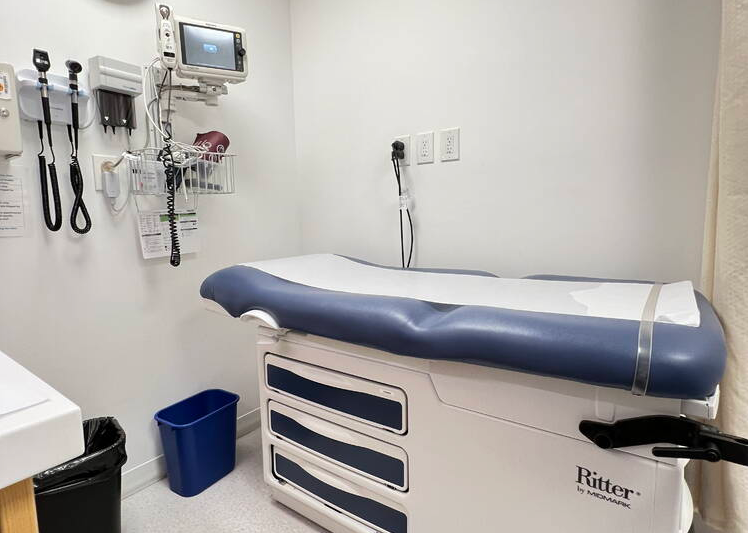Of the 708 additional physicians working in family practice in B.C. over the past year, 179 — or 25 per cent — are practising on Vancouver Island. That’s a great start in the right direction, says the former president of the Doctors of B.C.
The figures were released as the province marks the one-year anniversary of a new payment model for family physicians; more than 4,000 physicians have signed on.
Having 80 per cent of physicians buy into B.C.’s new Longitudinal Family Physician Payment Model and commit to family practice is “an impressive thing,” said Dr. Joshua Greggain, adding there’s reason to believe more doctors from out of province or the country will also be attracted to the new deal.
Health Minister Adrian Dix said those 708 doctors represent a 16.5 per cent increase in physicians in family practice.
There’s been an 11.3 per cent increase in nurse practitioners, or an additional 60 NPs working in B.C. communities.
That increase meant that on Dec. 31 — after the first nine months with the new payment deal in effect — there were 4,997 physicians working in longtitudinal family practices in B.C.
“It’s now more than 5,000,” said Dix, calling the payment model transformative. “We had people leaving the profession and now we see the numbers growing.”
Of the 708 doctors new to family practice in the province, in addition to the 179 on Vancouver Island, 211 are working in the Vancouver Coastal Health authority, 138 in Interior Health, 132 in Fraser Health, and there was a net increase of 35 family doctors in Northern Health.
A remaining 13 aren’t classified but are believed to be working on service contracts throughout the province.
But an estimated 900,000 people in the province are still without a family doctor, according to the Canadian Community Health Survey.
Dix noted B.C. is adding doctors in the face an increased need from a growing and aging population.
“Two hundred thousand more people coming to B.C. this year — a very significant demand on the system,” said Dix, adding progress is being made as a result of the province working with the Doctors of B.C., nurses and nurse practitioners.
Greggain said there’s real reason for optimism given the increase in family doctors in just a year.
“I know everyone would like the numbers to be a bit higher … but don’t forget two years ago, we were in dire straits and people were closing practices all over the place,” said Greggain.
”So the fact that in British Columbia right now, we’re making a positive growth impact is of real significance,” he said.
The principles of the new payment model for family doctors — compensating doctors for the time taken to care for patients — is to be extended to hospital-based doctors, maternity and long-term care physicians.
This is not the end of the Longitudinal Family Physician Payment Model journey, said Greggain.
“This is a dramatic change from where we were 18 months ago,” said Greggain. It’s not perfect, he added, “but it is a move in a positive direction that we’ve not seen for many years.”
Greggain acknowledges that, with a growing and aging population in B.C., as well as more family doctors retiring or working part-time, it’s hard to gauge the exact number of doctors needed. He said physicians are again choosing to come to work in British Columbia “where they historically would have left for financial reasons,” but the cost of living in Victoria and Vancouver remain obstacles.
“We always wrestle with how do we attract professionals, physicians, nurses, etc. in a place that’s very expensive and so again, there is some shifting back and forth, but I think right now, politically, economically and recruitability wise, people are choosing to come to British Columbia,” he said.
Vancouver-based internal medicine specialist Kevin Mcleod, a critic of the health care system on social media, said family doctors have moved to the new payment model to practise family medicine but have come from hospital work and walk-in clinics. “We’ve shuffled the deck chairs around,” Mcleod wrote on social media site X.
Next, all kinds of incentives will be made to bring doctors back to hospitals and “it goes round and round and the taxpayer and the patients lose,” he wrote.
“What really needs to be done is an increase in training positions now, not years from now.”
The province needs to roll out its new medical school at Simon Fraser University and make it easier for physicians trained in other countries to work in B.C., said Mcleod.
Dix said the province is adding 128 spaces to the University of B.C.’s medical school.
ceharnett@timescolonist.com





